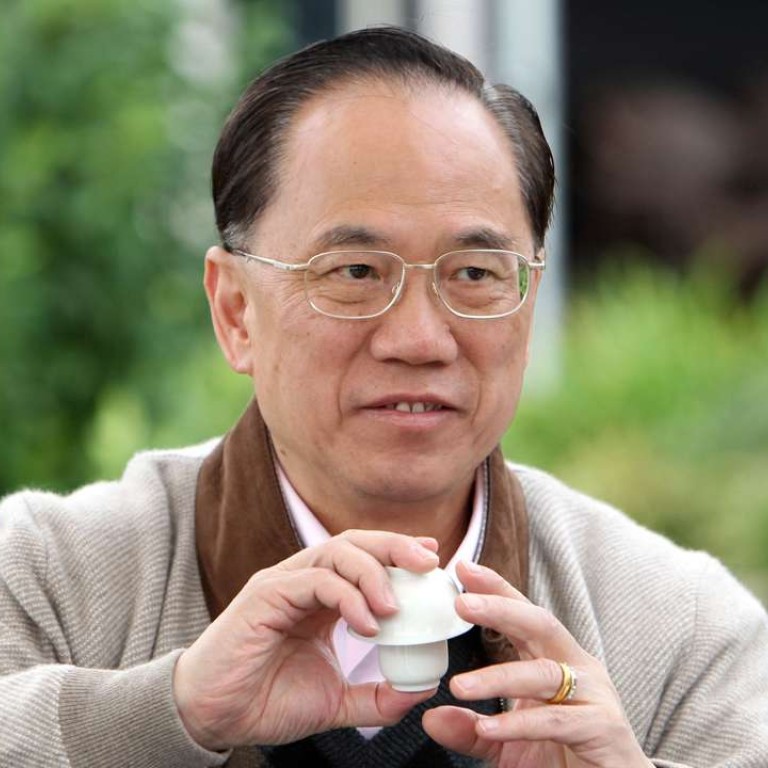
Ideas will disappear if they are false, Donald Tsang says in comments on Hong Kong independence
Genuine ones will last even if efforts are made to snuff them out, former chief executive said, adding that city faces challenge of “extreme” views
The former chief executive Donald Tsang Yam-kuen for the first time has chimed in on the discourse over the city’s independence, saying ideas would “automatically disappear” if they were not genuine.
He also said the biggest challenge the city faced was the expression of “extreme” views with the loss of neutral or middle ground politics, but believed Hongkongers were “clever” and would make wise choices about their long-term interests.
“Some things, if true, cannot be eliminated no matter how hard you try; some things that are false or insubstantial, you don’t have to do anything and they will automatically disappear,” Tsang told local newspaper AM730 in the second part of an interview.
Tsang – a devout Catholic – also referred to the spread of Christianity two millennia ago as an example of a “truth” thatgrew from a belief held by a small Jewish sect into one of the world’s dominant religions.
“It’s like how people saw Christianity 2,000 years ago … At the time, an elder from the Jewish faith said: ‘There’s no need to worry, we see a lot of cults springing up, no need to mind it. After a while [they] will disappear on [their] own’,” he said.
“If it is really the truth, you won’t be able to suppress it, so by the same token, you can relax when looking at this problem [of Hong Kong independence].”
Tsang agreed that more communication and exchanges between political groups and the government were necessary but said it would be easier to achieve if centrists were not being “pulled to extreme positions”.
“When politically neutral and centrist positions continue to tear away … communication becomes more and more difficult. I think this is the challenge society faces.”
Tsang, who has kept himself under the radar since he left office in 2012 amid a controversy over junkets and a subsequent probe by graft-busters, said it would not be fair for him to compare or comment on his successor Leung Chun-ying’s performance as decisions were made based on the political context of the time.
Tsang said that some of his achievements in office included having the ability to navigate the political environment of his time and putting in place policies such as minimum wage and public transport fare concessions for the elderly.
Tsang, 71, who has been charged with two counts of misconduct in public office related to a plan to rent a three-storey penthouse in Shenzhen, will face trial in January.
The former chief executive, who was the financial secretary before the 1997 handover, said Hong Kong’s future development depended on the mainland, and missing out on opportunities offered by the growth of the mainland economy and its move towards a more open and internationalised route would be “very bad”.
He linked Hongkongers’ recent apathy towards mainlanders to a history of spending more than a hundred years apart and called for more mutual tolerance.
“What I feel is that the tolerance the mainland has towards us is higher than the tolerance the few of us have towards mainlanders – this is something that worries me.”

